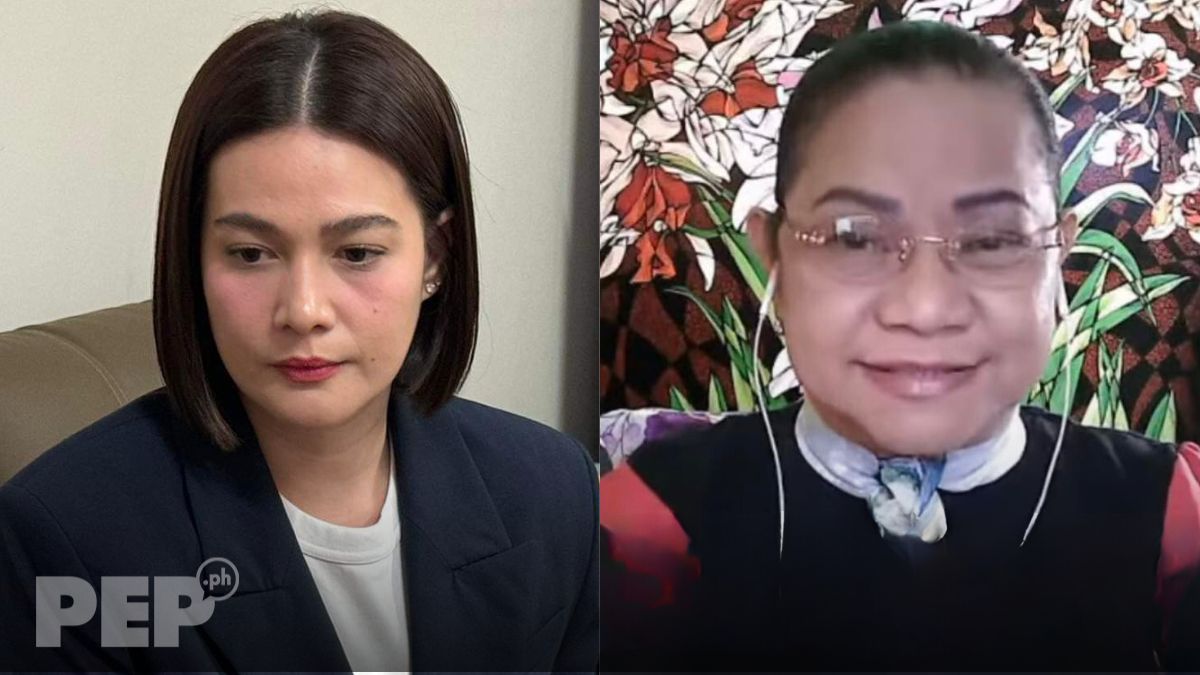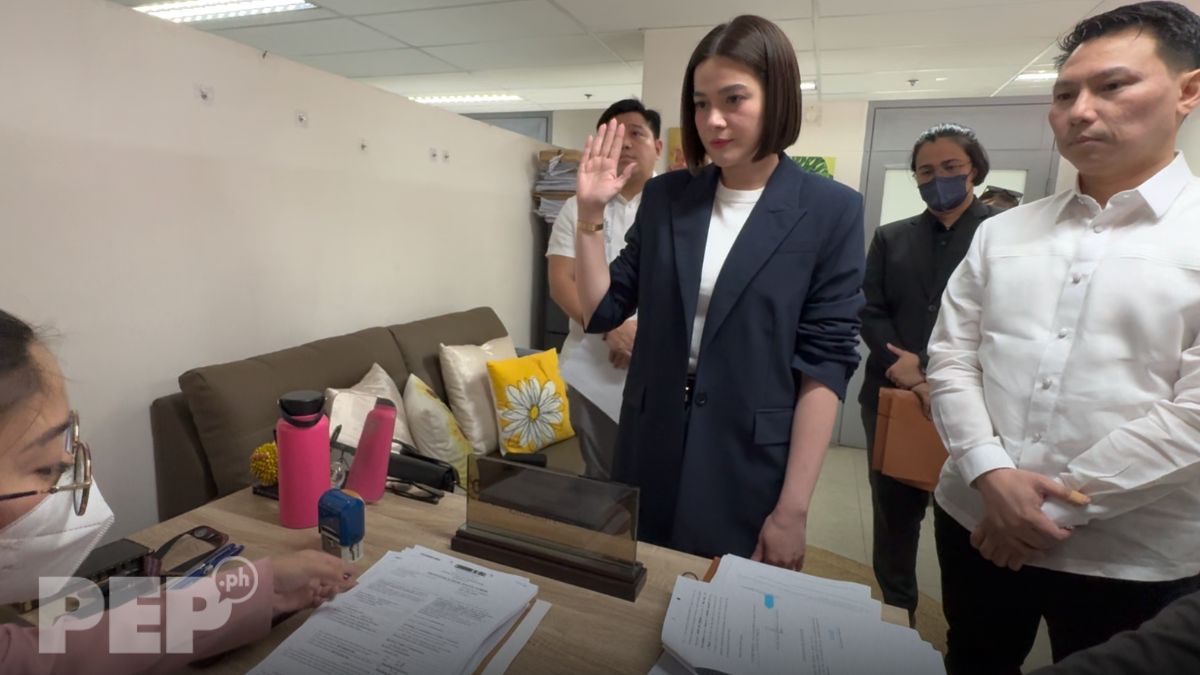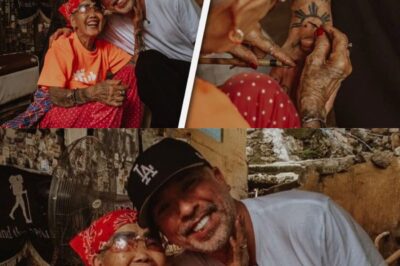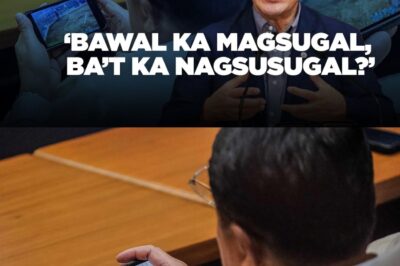The Philippine entertainment world is no stranger to drama, but this time, the spotlight shifts from the silver screen to the courtroom. Veteran columnist-vlogger Cristy Fermin is officially charged with cyberlibel following a complaint filed by top actress Bea Alonzo — a move that has ignited intense public curiosity and set a serious precedent in the digital age.
But what exactly happened behind the scenes? What does this mean for content creators, press freedom, and public accountability? And why is this case being viewed by legal experts as a landmark for digital ethics?

The controversy began in early 2024, when Cristy Fermin, alongside her Showbiz Now Na co-hosts Rommel Villamor and Wendell Alvarez, uploaded several video episodes allegedly maligning Bea Alonzo. In these episodes — spanning January to May 2024 — Fermin repeatedly discussed Bea’s personal life, particularly her breakup with actor Dominic Roque. According to a 66-page resolution by the Quezon City Prosecutor’s Office, the content contained defamatory imputations with no verifiable evidence to support the claims.
Worse still, prosecutors noted that the vlogs reflected indifference as to the truth or falsity of the accusations, implying a clear intent to harm Bea Alonzo’s reputation. The prosecutor concluded that there was no good reason or justifiable motive behind the respondents’ actions, other than to damage Bea’s stock and good name.
This isn’t just showbiz gossip — it’s a test of digital accountability. Bea Alonzo’s legal counsel, Atty. Joey Garcia, emphasized that the prosecutor’s recommendation to file formal charges is a significant vindication for the actress. He highlighted that under new procedural rules, the standards for moving a case forward are much stricter. Yet, despite the high bar, the case met the threshold of prima facie evidence with reasonable certainty of conviction. “This decision is not only a triumph for our client, but for the principle of accountability in the digital age,” Garcia told PEP.ph.
As of July 30, 2025, a warrant of arrest has been issued against Cristy Fermin and her co-hosts. Each may post bail amounting to ₱48,000. The case now proceeds to the Regional Trial Court, where the defendants will face trial. While the exact video clips that prompted the charges were not publicly identified, it is known that multiple vlog episodes contained mocking remarks and unverified claims — including statements allegedly sourced from the girlfriend of Bea’s former driver, who is also facing a separate cyberlibel charge.

The vlogs touched on multiple sensitive topics, including Bea’s breakup with Dominic Roque, alleged issues with her former driver’s working conditions, claims about unpaid benefits and overtime, and anonymous sources sharing alleged private information. Bea’s legal team pointed out that none of these allegations were substantiated with credible proof — and Bea strongly denied all accusations.
The Cristy Fermin cyberlibel case has sparked intense debate across social media. While some see this as a win for celebrities protecting their privacy, others warn of the thin line between press freedom and defamation. But one thing is clear: this case sends a powerful message. “Freedom of speech does not equate to a license to defame,” said Atty. Garcia. “The law holds individuals accountable, especially in the digital space where falsehoods can spread rapidly and cause lasting damage.”
In a separate complaint filed by Bea Alonzo in May 2024, the Quezon City Prosecutor’s Office also found probable cause to charge the girlfriend of her former driver with one count of cyberlibel for spreading malicious information online. Three other counts were dismissed. This adds another layer to the growing cyberlibel saga surrounding Bea, raising further questions about how public figures defend themselves in an age of viral misinformation.

This isn’t just about two celebrities in conflict — it’s a wake-up call for vloggers, influencers, journalists, and content creators everywhere. Digital content must be truthful and verifiable. Even opinion-based commentary can cross the line into defamation. Cyberlibel laws in the Philippines are evolving and are being applied more stringently. Legal consequences for online defamation are real, enforceable, and increasingly visible.
The Cristy Fermin cyberlibel case is still unfolding. With the court proceedings set to begin, more developments are expected in the coming weeks. Stay tuned for verified updates, legal insights, and exclusive interviews as the case progresses — and as Philippine showbiz confronts the real cost of digital defamation.
News
Secret No More: Gerald Anderson and Gigi De Lana’s Private Wedding in Batangas Breaks the Internet – Here’s What You Missed!
Did Gerald Anderson and Gigi De Lana just get married in secret? Yes — and the internet can’t keep calm….
“She Was Gone for Minutes”: Mona Alawi Found Unconscious, Ivana Alawi in Tears – What Really Happened?
In a moment that shocked fans across the globe, Mona Alawi, the beloved younger sister of actress and YouTube star…
Hanggang sa Muli, Mahal Kita’: Why Rufa Mae Quinto’s Heartbreaking Farewell to Her Husband Is the Story You Can’t Ignore
Filipino actress and comedienne Rufa Mae Quinto is grieving the unexpected passing of her estranged husband, Trevor Magallanes, and the…
Jo Koy Blessed by Tattoo Legend Whang-Od: The Viral Moment Everyone’s Talking About!
Why did Jo Koy travel all the way to the remote mountains of Kalinga? What really happened during his visit…
Caught Red-Handed: Congressman Busted Watching E-Sabong During House Session – Tulfo Weighs In!
In a moment that sent shockwaves through the online community and the halls of Philippine politics, a congressman was caught…
Claudia Barretto Breaks Silence: The Real Reason Behind Julia and Gerald’s Breakup – You Won’t Believe What She Revealed!
When celebrity couples part ways, the public is often left in the dark—guessing, speculating, and waiting for answers. But not…
End of content
No more pages to load












